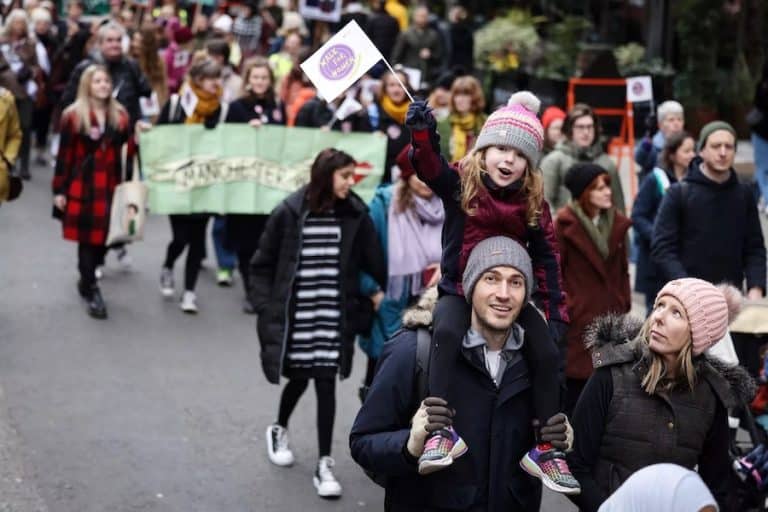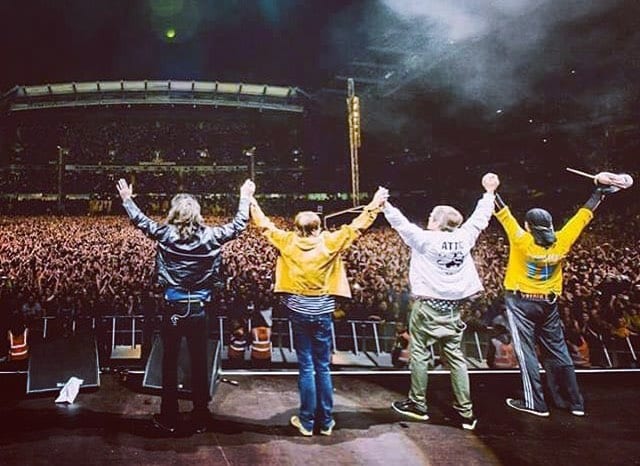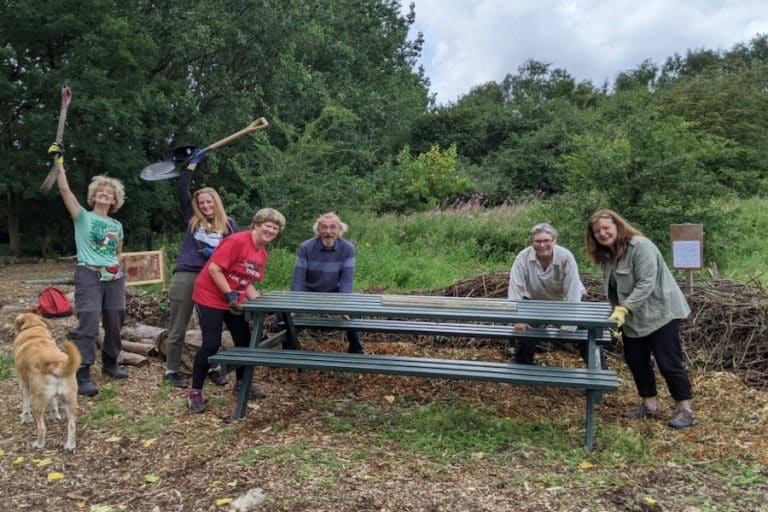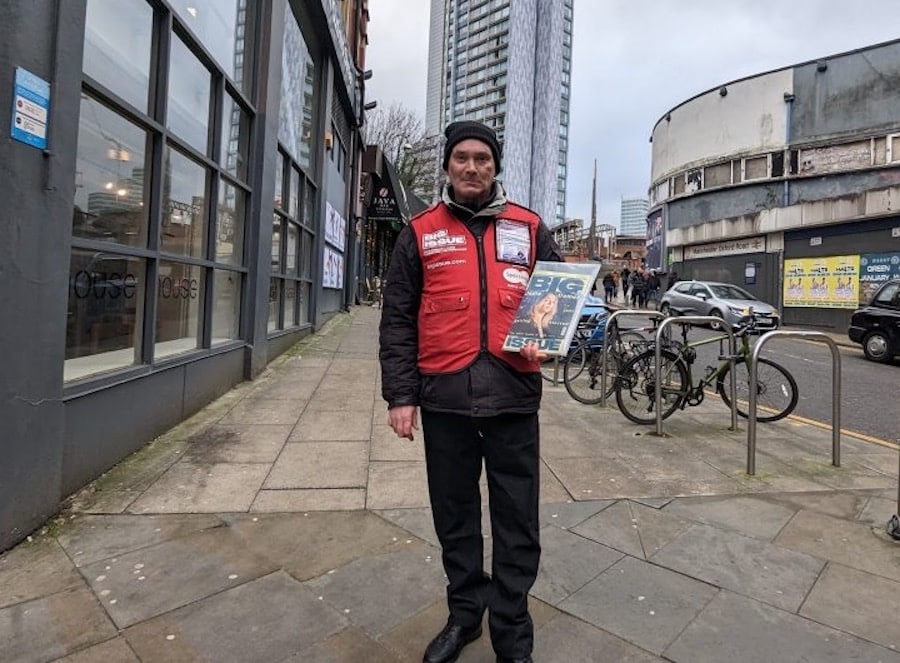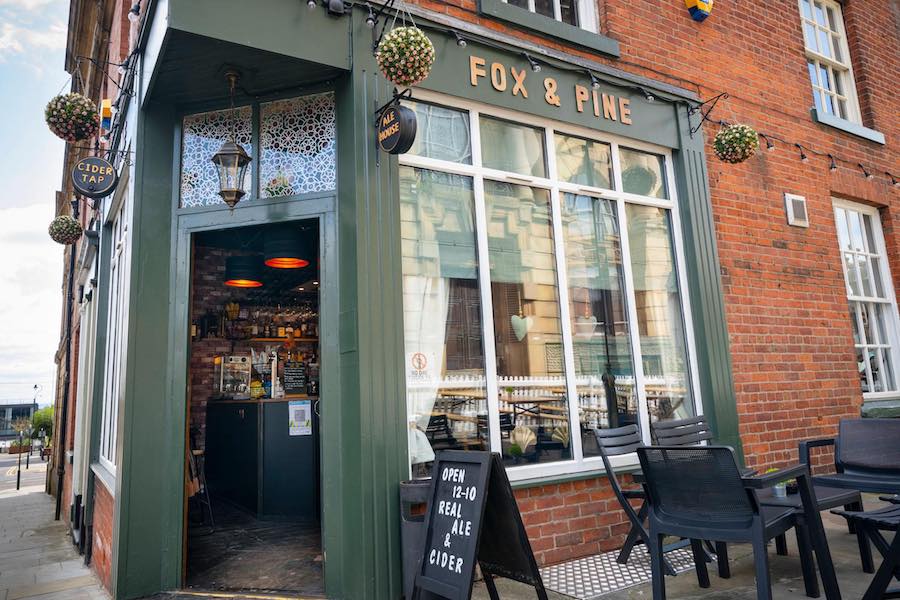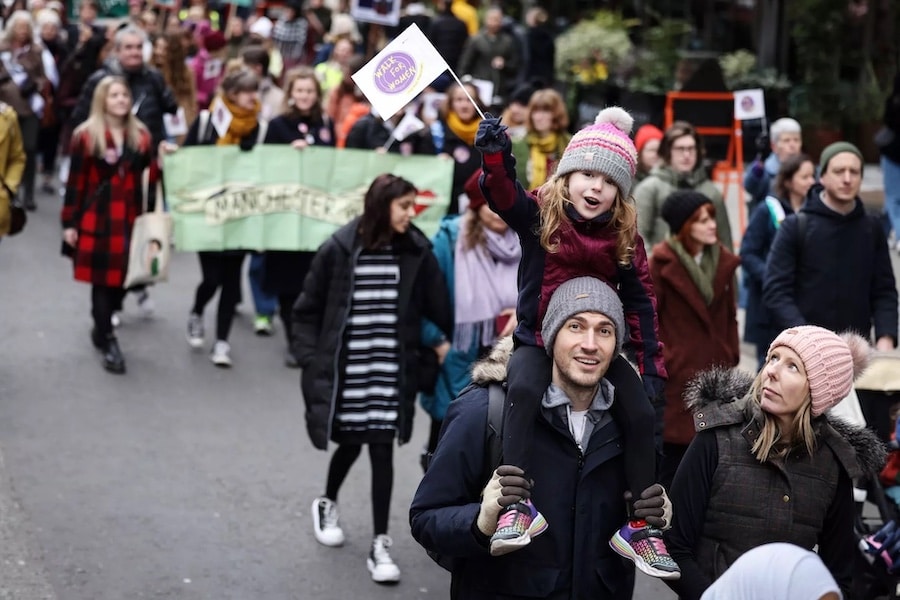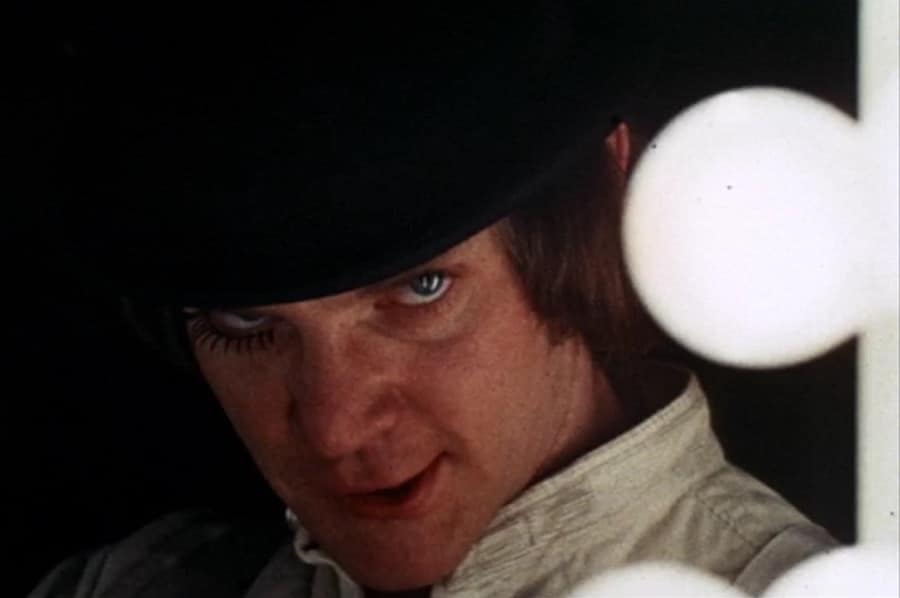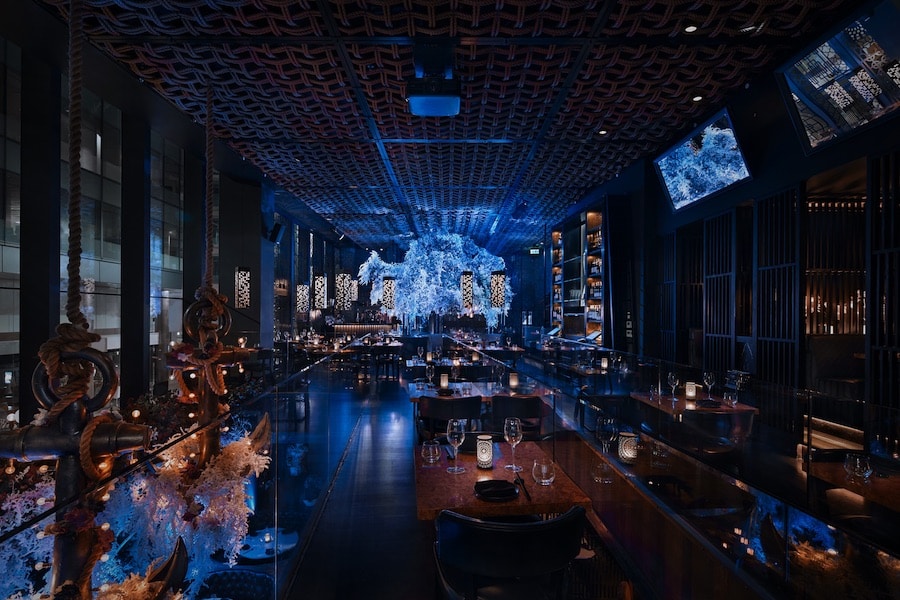Sticky dance floors and rowdy crowds: inside Rotters Nightclub
- Written by Thom Bamford
- Last updated 1 year ago
- Cornerstone, Culture, History
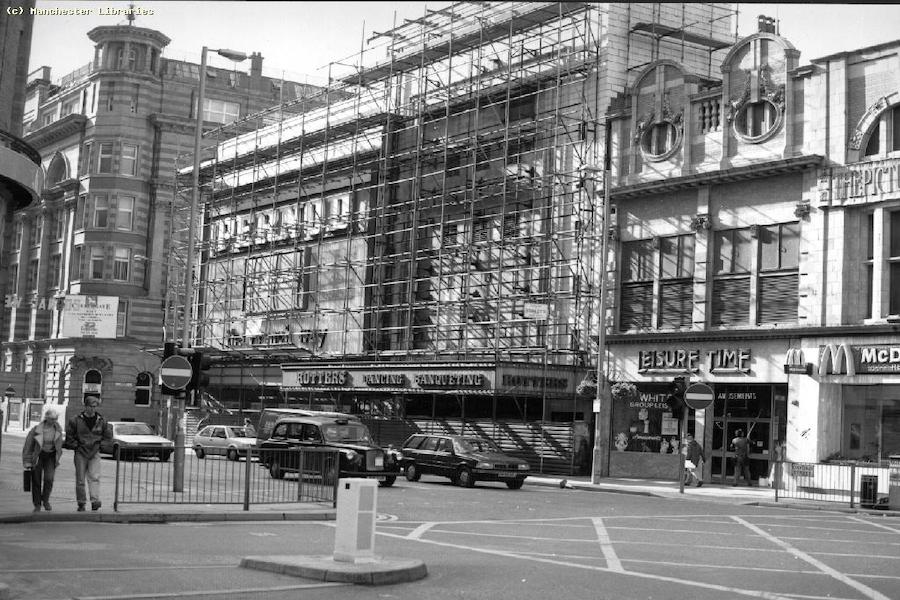
Step into a time machine, folks, because we’re about to take a wild ride down Manchester’s memory lane to Rotters Nightclub.
We’re diving headfirst into the legendary world of Rotters Nightclub on Oxford Street – where the carpets were stickier than bubblegum in your hair, the decor was… well, let’s say “distinctive,” and the crowd?
Rowdy doesn’t even begin to cover it.
But trust us, it’s a story you won’t want to miss, because beneath the sticky dance floors and the occasional scuffles, Rotters was a piece of Manchester’s nightlife history that danced to its own unforgettable beat.
It was a place where nightlife took on a unique character, earning its reputation as the “cattle market” with its iconic sticky carpets, distinctive interior, and rowdy crowd.
While the music, the décor, and even the clientele all played a part in making Rotters legendary, it was the sum of its parts that created an unforgettable experience.
It also had a sister club in Stockport, too.
There is no doubt that Rotters is as iconic to people from a certain era as The Hacienda, Pips, and many more of Manchester’s great clubs.
A cinematic beginning at Rotters Nightclub
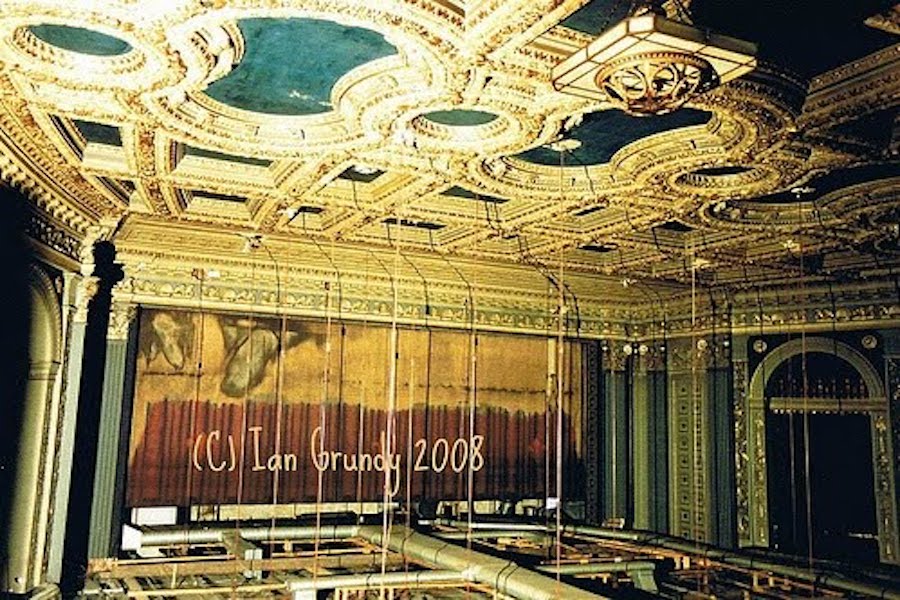
Before Rotters took over the venue, it was home to the prestigious Gaumont Cinema, a grand establishment that first opened its doors in the mid-1930s. This magnificent building featured a Renaissance-style exterior, a spacious double-height foyer adorned with mirrors, and a striking staircase that left a lasting impression on its visitors.
In the basement of the cinema, you would find two bars.
The Long Bar, known for having one of the longest bar tops in the world at the time, led to a discreetly marked set of double doors, revealing the Trafford Bar, which had a separate street-level entrance that most patrons preferred to use.
It was inside these bars that a unique atmosphere prevailed, where men often sat in solitude, communicating with subtle gestures and winks.
The Gaumont Cinema was one of the rare places in the city that ‘tolerated’ homosexuality, though unwritten rules dictated that overt displays were to be avoided.
One customer fondly described the bar as “very exotic,” a place that felt like a different world, populated by drag queens and men who weren’t shy about wearing makeup.
As times changed, the cinema underwent a transformation, and both bars were eventually redeveloped into a nightclub known as Rotters, a legacy that endured until the building’s eventual closure and demolition.
The Rotters Nightclub experience
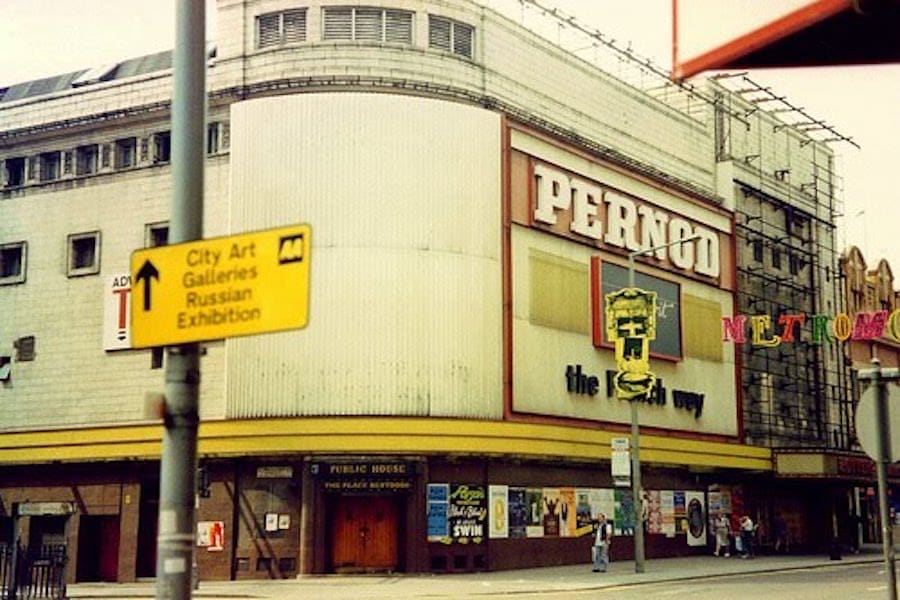
Rotters was known for its impressive size, featuring a massive grand staircase leading to a sound-proofed bar area adorned with tatty leather Chesterfield sofas and the unexpected location of the toilets, which became a hotspot for local revellers and occasional scuffles.
These regular brawls are strangely missed by many, a testament to the club’s rough-and-ready reputation that seemed to embrace its chaos.
If you type in Rotters to your search engine, you’ll see exactly what we mean.
Memories range from celebrating the incredible, beautiful decor to memories of fights, stabbings and the simply, unprintable.
What was Rotters Nightclub like inside?
Upon entering, guests were faced with a choice between two sizeable rooms.
One featured an extended bar, while the other housed a capacious dance floor, along with tables and chairs.
With its generous dance floors, electrifying bevvies, and vigilant bouncers, it may not have been the city’s top club, but it held a special place in the hearts of many, standing as one of the earliest examples of a bustling, cattle-market establishment.
Notably, a grand theater-like staircase led to the toilets situated on the first floor, curiously concealed from the bouncers’ watchful eyes, making it a frequent starting point for altercations.
Those who were fortunate (or perhaps not) might find themselves tumbling down the stairs amid a full-scale brawl.
Rotters vs. The Hacienda
In the early 80s, Rotters was definitely one of the more popular clubs in town, competing with a new establishment around the corner on Whitworth Street, known as The Hacienda.
The two clubs, initially cut from the same cloth, began to cater to different crowds.
The Hacienda’s focus shifted toward the emerging Acid House scene, leaving Rotters with its familiar sticky carpets and cheesy tunes, which, while beloved, could not keep pace with the ever-changing landscape of Manchester’s nightlife.
Music Agenda and Live Acts
Beyond its reputation for cheesy tunes, Rotters had a progressive and diverse music agenda.
Regular house, reggae, and soul nights, coupled with an impressive lineup of live acts, transformed Rotters into a serious live music venue.
Iconic artists like Slade, Bahaus, Simple Minds, Killing Joke and XTC graced its stage, elevating its status in the city.
One punter described the Slade gig as ‘the loudest they had ever been to’.
Fading into History
Alas, Rotters met its end in the early 90s, replaced by a modern building that stands on the site today.
The once-grand Gaumont Cinema, the iconic Rotters, and their unforgettable memories now reside in the past, giving way to an NCP car park and a Superdrug.
Rotters Nightclub may be a bygone era, but it continues to live on in the hearts and memories of those who experienced its unique charm.
The sticky carpets, brawls, the eclectic music, and the unforgettable atmosphere have left an indelible mark on Manchester’s nightlife history, making Rotters a cherished part of the city’s cultural heritage.
So, why not share with us your memories of Rotters Nightclub?
Email them or any pics you have to [email protected] for a chance to be featured!
Check out more history of the place at Pubs of Manchester by clicking here
- This article was last updated 1 year ago.
- It was first published on 3 November 2023 and is subject to be updated from time to time. Please refresh or return to see the latest version.
Did we miss something? Let us know: [email protected]
Want to be the first to receive all the latest news stories, what’s on and events from the heart of Manchester? Sign up here.
Manchester is a successful city, but many people suffer. I Love Manchester helps raise awareness and funds to help improve the lives and prospects of people across Greater Manchester – and we can’t do it without your help. So please support us with what you can so we can continue to spread the love. Thank you in advance!
An email you’ll love. Subscribe to our newsletter to get the latest news stories delivered direct to your inbox.
Got a story worth sharing?
What’s the story? We are all ears when it comes to positive news and inspiring stories. You can send story ideas to [email protected]
While we can’t guarantee to publish everything, we will always consider any enquiry or idea that promotes:
- Independent new openings
- Human interest
- Not-for-profit organisations
- Community Interest Companies (CiCs) and projects
- Charities and charitable initiatives
- Affordability and offers saving people over 20%
For anything else, don’t hesitate to get in touch with us about advertorials (from £350+VAT) and advertising opportunities: [email protected]
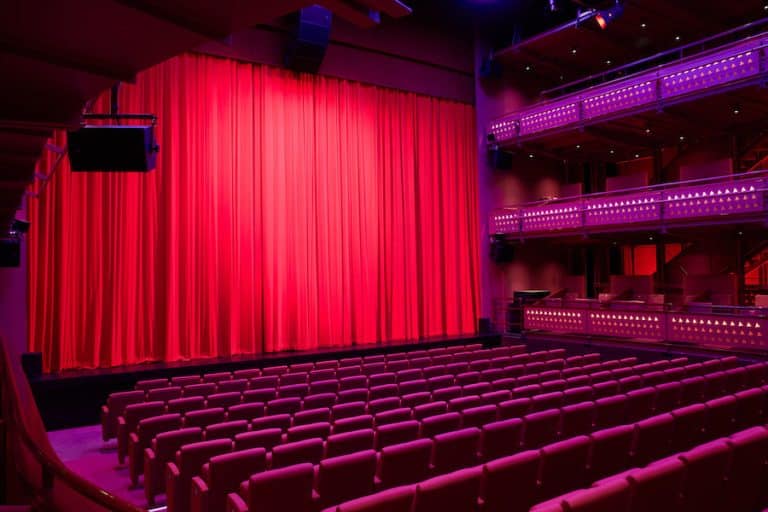
LOWRY’s Quays Theatre gets a plush new look thanks to award
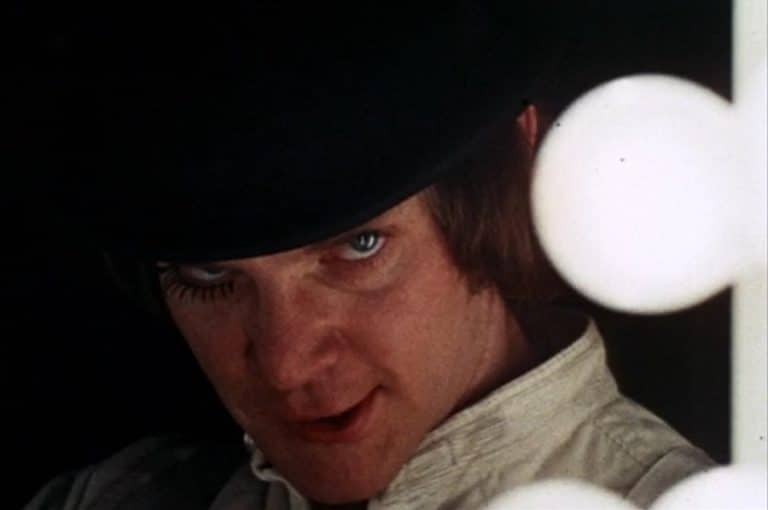
What is the legacy of Manchester’s most controversial (and maybe best) novel?

Big Issue, bigger heart: Manchester comes together for Colin
